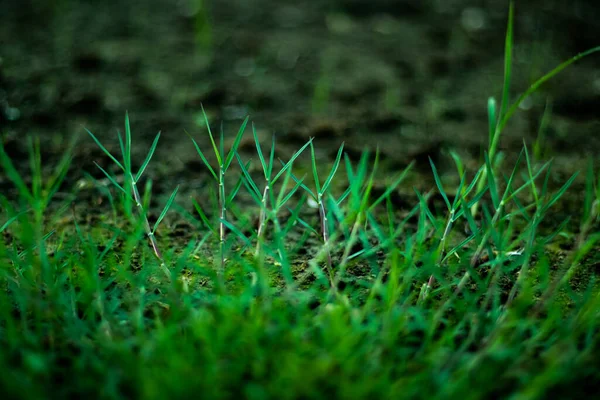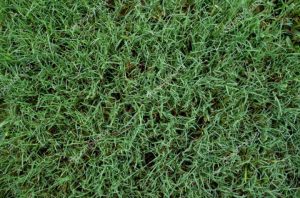
You want a magical lawn that’s a sight to behold. Don’t we all? Then you’ve certainly heard how Bermuda grass does best in the Southeast climate. Bermuda is one of the best because it uses less water and tolerates the heat in Georgia while standing up to regular use. You can play or lie on it and really get the most for your efforts. But how do you get started? When is the best time to plant Bermuda grass? Let’s find out!
How To Identify The Best Time To Plant Bermuda Grass Seeds?
We are talking about a lawn and not a garden. As much as timing is critical, it’s not just a question of identifying the best time but also preparing for it. You are well aware that most plants thrive in warm temperatures and rain. However, when it comes to Bermuda grass, there’s a specific time when it thrives.
For a prosperous Bermuda grass, you have to plant the seed. It doesn’t need much water to thrive, either! Overwatering it would end badly. So, it’s best to wait for rain instead of being the one to water the young plants. To identify the perfect time to cover the seeds with dirt, you must understand the four seasons and how they transition from one to another. Experts suggest at least two months from the last frosting.
Climate Requirements To Grow Bermuda Grass
Every plant thrives under certain climate conditions. When it comes to Bermuda grass, it thrives in a tropical climate which is expected in the southern states. These states are known to have shorter winters and longer summers than the northern states. The grass is also tolerant to drought and heat, which makes it withstand the hot summers. Its resilience to a harsh climate is why most Americans, not just in Georgia, prefer it for their lawn.
Bermuda grass is sensitive to cold temperatures. It drives in sites with good drainage and direct sun. The excellent climate for grass growth is from late spring to summer. Despite not thriving in cold months, the Bermuda grass stays green in frost-free climates. In areas with snowfall, it remains dormant and brown and only turns green during spring.
Best Time Of Year To Plant Bermuda Grass
The ideal time to plant Bermuda grass is late spring and early summer. Any frost would ruin the growth and send you back to square one. Bermuda grass can be grown all year round as long as the climates remain warm and moist. Georgia experiences shorter winters, with too little frost to ruin your Bermuda grass. You can also plant the grass in early spring, but it’s risky.
The best time of the year to plant the grass in northern states is late March and early April. The grass will thrive between May and September. The southern states like Texas, Florida, California, and Georgia have a longer timeframe. You can plant Bermuda grass in these states as early as February.
As long as the temperatures are above 65°F, it’s the perfect time to lay seeds under healthy soil or lay the Bermuda sod. In Northern Georgia, especially in Atlanta, the best time to plant the grass is between early to mid-summer. We recommend planting sod during early autumn. In warmer Southern Georgia, planting the seeds should be done early to mid-spring, while sod is best planted in mid to late autumn.

An example of thick Bermuda grass.
Tips For Preparing Your Bermudagrass Lawn
To achieve a fantastic lawn that everyone will die for, you must put a lot of energy into its preparation. People praise a nicely developed lawn, but if they have never taken care of one themselves, they’ll never understand the work put into it. A Bermuda grass lawn makes your home more appealing, and if you decide to sell your home, it will fetch a nice price in the property market.
However, maintaining the lawn is not easy. In fact, the further south your home is situated, the earlier weeds grow. So, how do you prepare your Bermuda grass lawn? Let’s find out.
Step 1: Get Rid of Weeds and Add Fertilizer
In late January or early February, apply a preventer plus fertilizer to prevent other grass forms from growing, especially after the temperatures hit 55 degrees. The fertilizer will also make the soil more fertile as it awaits Bermuda grass planting.
Step 2: Plant the Seeds
In late spring or early summer, after the soil is warm enough and the temperatures are above 65 degrees, plant your seeds or sod. You can find out the temperature of the soil using a soil thermometer.
Step 3: Repair the Bare Spots
In about three weeks, you’ll have seen the shoots. Some will not have shown, meaning planting new seeds in those spots. Do that to ensure the lawn is even.
Step 4: Back to Weed Control and Fertilization
Weeds will try to grow and compete against your grass for nutrients. Use suitable weed control herbicides to get rid of the weeds. Some areas of the grass will be affected. Reseed the treated areas and use fertilizer to boost their growth.
Step 5: Aerate the Lawn
Bermudagrass grows to a dense blanket and might thatch excessively. Ensure you aerate the soil by dethatching the grass before it’s too severe to control.
Step 6: Start Watering
Once the shoots have grown to a noticeable height, ensure it receives just enough water every week, at least 1 inch from rainfall or by watering it.
Step 7: Pest Control
Control pests like mole crickets and mites with the best pesticides.
Time To Grow Bermuda Grass for A Lush, Healthy Lawn?
You already know you don’t just plant Bermuda grass without a plan. You must prepare and plan to achieve a lush and healthy lawn. Late spring and early summer is always the best time to lay that sod or plant the seed for incredible results. However, it doesn’t start or end with planting the seeds. You must prep the area first, and after planting it, you must cater to the grass with utmost care. If you want a healthy, lush lawn NOW, without waiting on timing, laying Bermuda sod is a much easier choice than planting seed. If you need help with installing Bermuda grass sod, contact us right away.
Bermuda Grass FAQs
Still looking for tips and tricks to plant Bermuda grass? Check out these common questions!
Q: What is the best month to plant Bermuda grass?
A: The best time to plant Bermuda grass is during the late spring or early summer months when soil temperatures reach at least 65 degrees Fahrenheit.
Q: Can I just throw Bermuda grass seed down?
A: No, Bermuda grass seed requires proper soil preparation, including tilling, leveling, and adding soil amendments to promote seed germination and root growth.
Q: How long does it take for Bermuda grass to establish?
A: Bermuda grass can take anywhere from 3 to 6 weeks to germinate, and it typically takes about 90 days for it to establish a strong root system.
Q: Is it too late to plant Bermuda grass?
A: If soil temperatures are still above 65 degrees Fahrenheit, it’s not too late to plant Bermuda grass. However, it’s best to plant Bermuda grass during the late spring or early summer months.
Q: Will Bermuda grass choke out weeds?
A: Yes, Bermuda grass has a dense growth habit that can help to choke out and suppress weeds.
Q: Does Bermuda grass survive winter?
A: Bermuda grass is a warm-season grass and will go dormant during the winter months. However, it will come back to life in the spring when soil temperatures warm up again.
Q: How do you prepare the ground for Bermuda seed?
A: To prepare the ground for Bermuda seed, you should first remove any existing grass or weeds, then till the soil to a depth of at least 4 inches. Next, level the soil and add soil amendments to promote seed germination and root growth.
Q: When should I lay Bermuda seed?
A: Bermuda seed should be laid during the late spring or early summer months when soil temperatures reach at least 65 degrees Fahrenheit.
Q: Does Bermuda seed need to be covered?
A: Yes, Bermuda seed should be covered with a thin layer of soil or mulch to help protect it from birds and other pests and to promote seed germination.
Q: What makes Bermuda grass spread faster?
A: Proper watering, fertilization, and mowing can all help to promote the spread of Bermuda grass.
Q: Should you bag Bermuda grass clippings?
A: No, it’s not necessary to bag Bermuda grass clippings. They can be left on the lawn to decompose and provide nutrients to the soil.
Q: Can you plant Bermuda sod in the fall?
A: Yes, Bermuda sod can be planted in the fall, but it’s best to do so early in the season to allow the sod to establish a strong root system before winter.
Q: Will Bermuda grass reseed itself?
A: Yes, Bermuda grass can reseed itself, but it’s important to properly maintain the lawn to prevent excessive thatch buildup and promote healthy growth.
Purchase Bermuda Sod for a Gorgeous Lawn
In conclusion, The Turfgrass Group is dedicated to providing premier Bermuda grass sod to homeowners, landscapers, and businesses throughout Georgia. We take pride in our commitment to quality and customer satisfaction, and we are confident that our top-quality grass will help you achieve the lush, green lawn you desire. So why wait? Contact us today to find a local Bermuda grass grower and start enjoying a beautiful, healthy lawn!